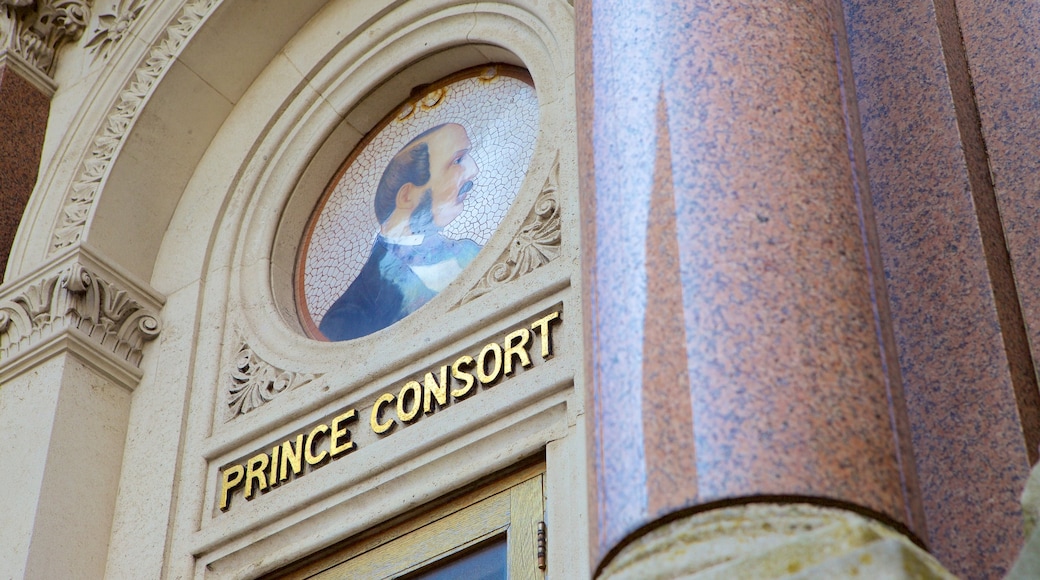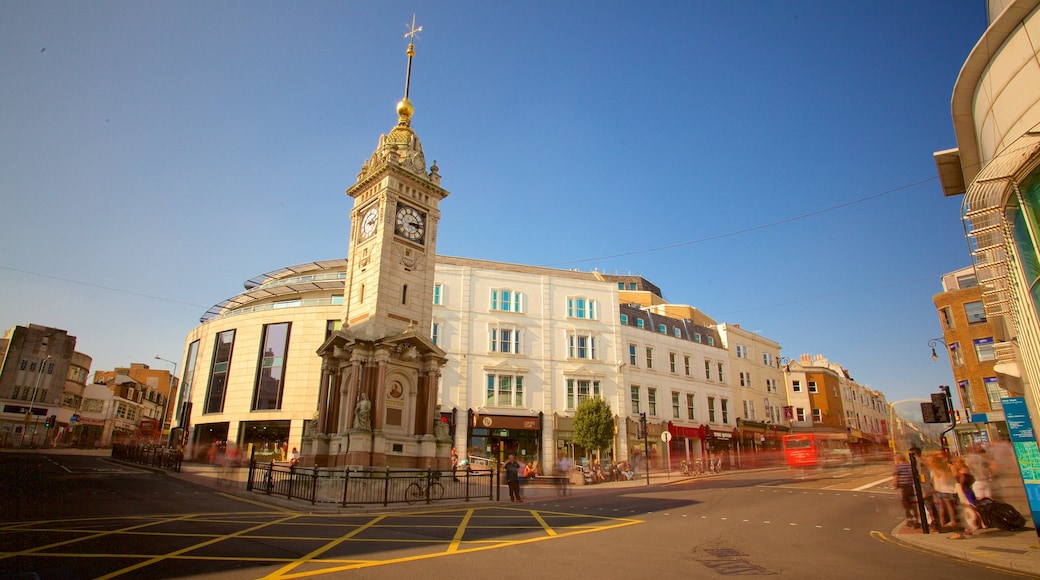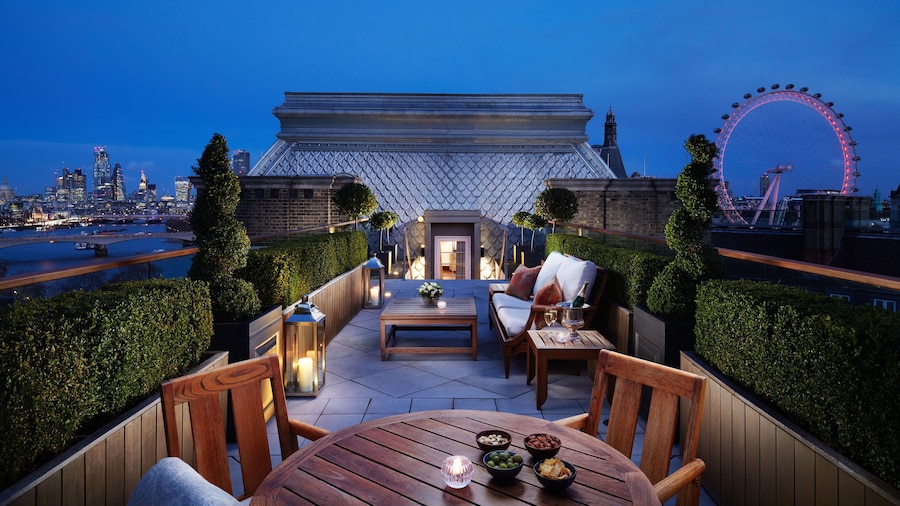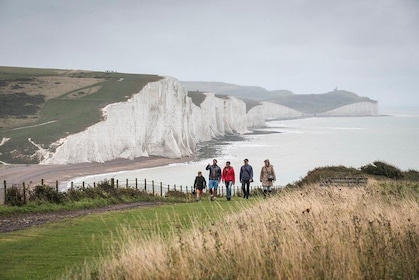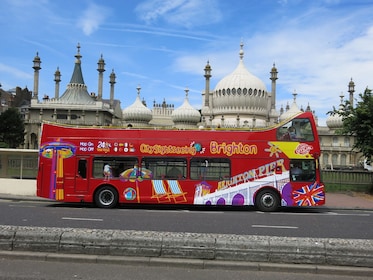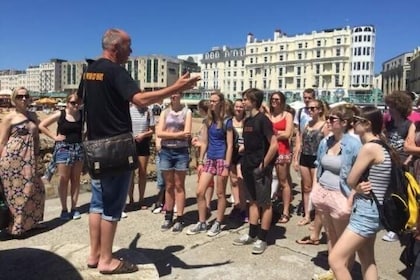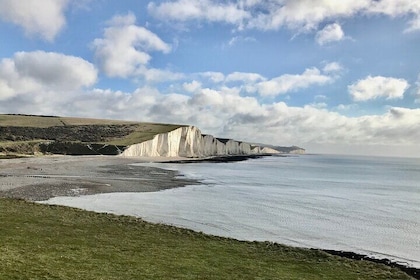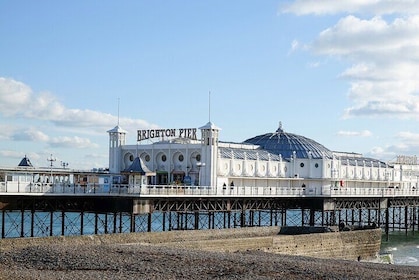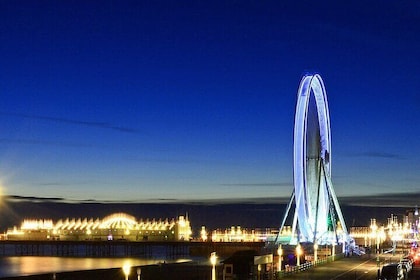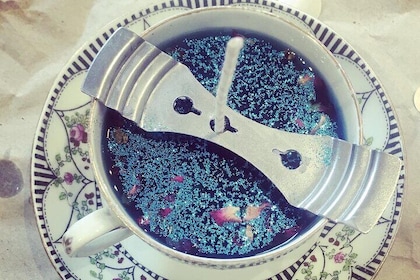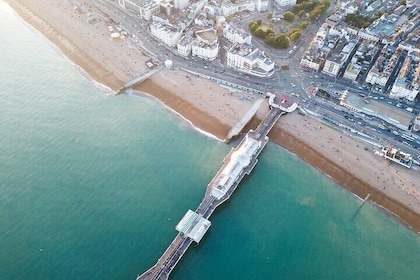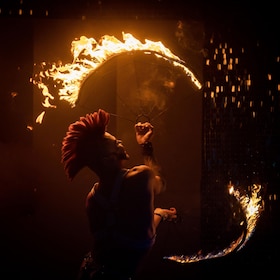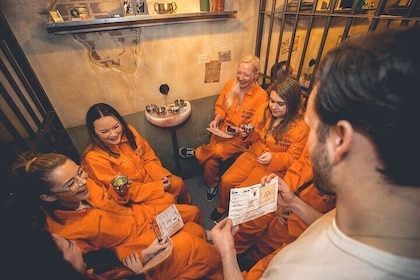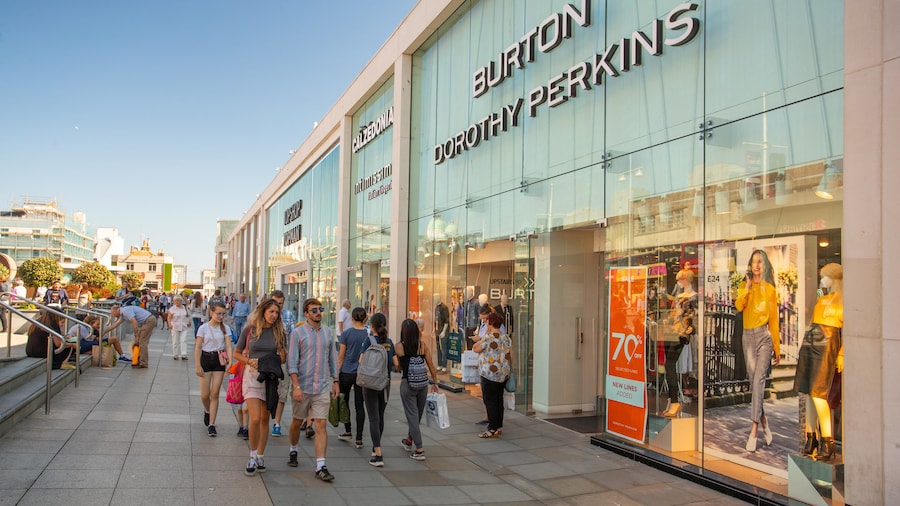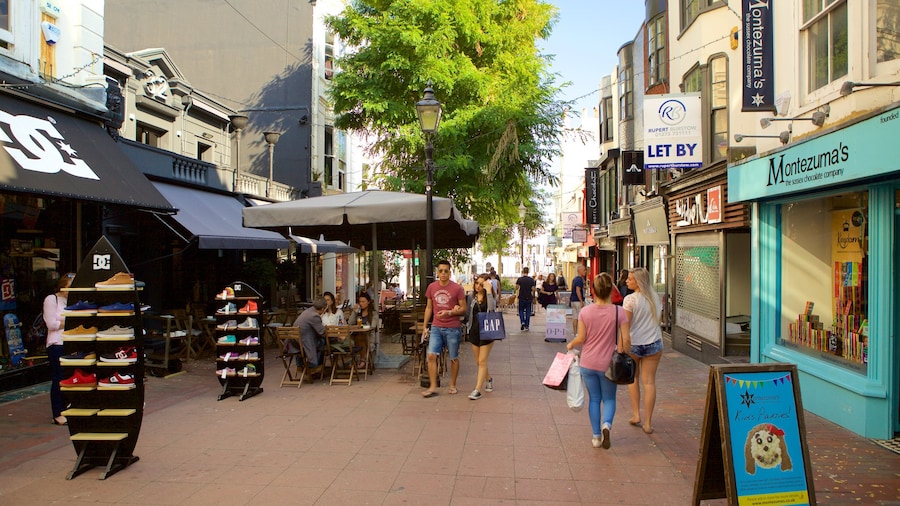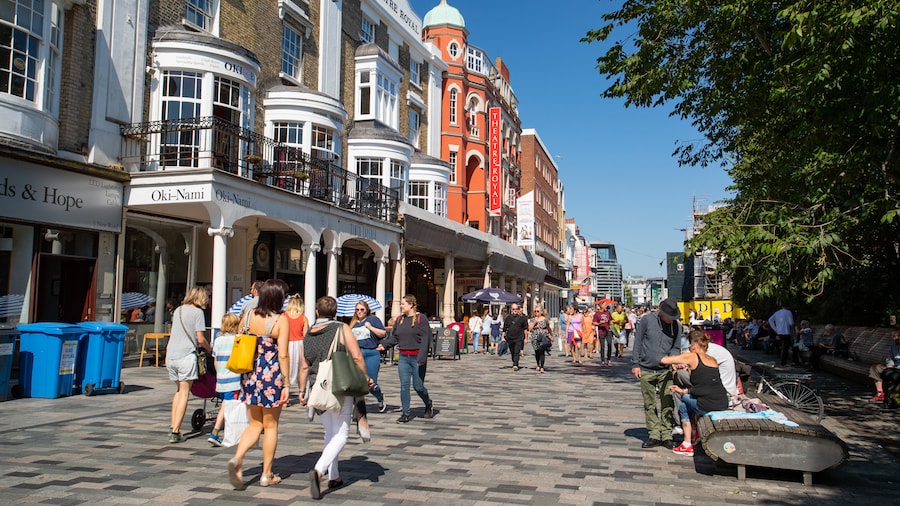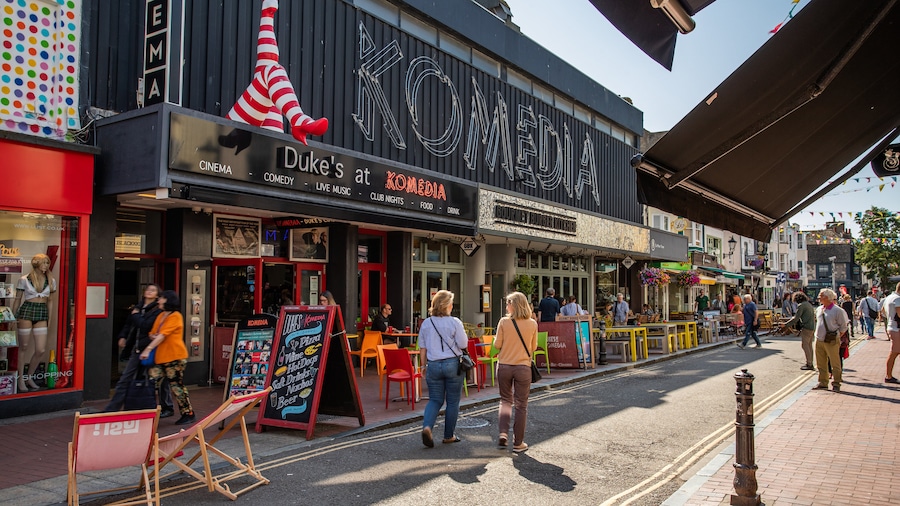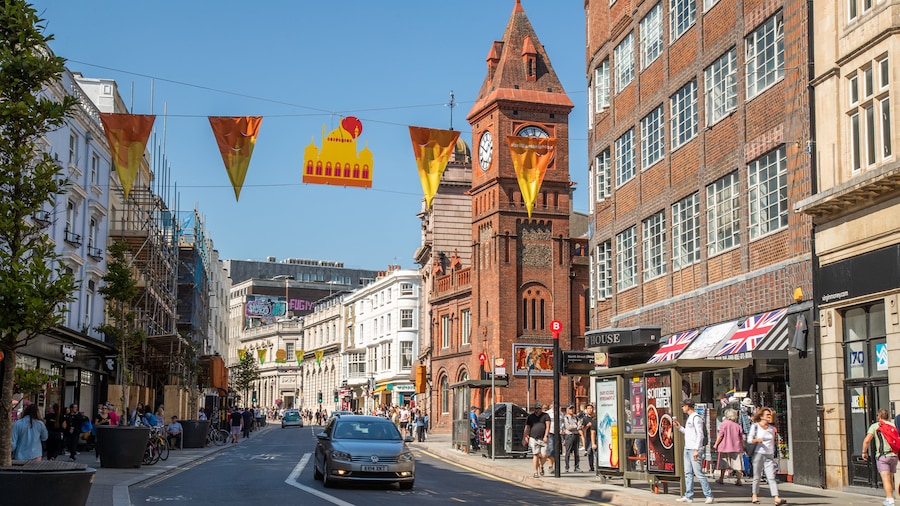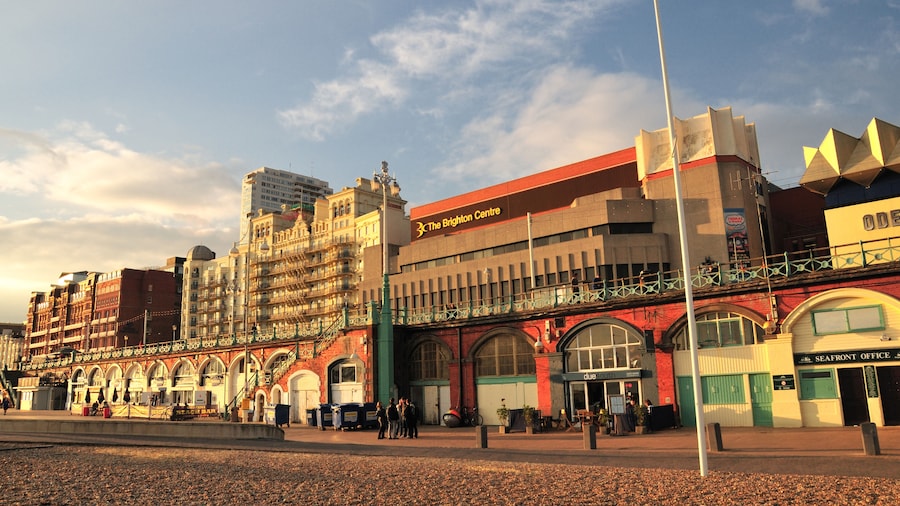While the rest of the city has grown around it, this timekeeper stands tall, as an ever-present reminder of the Victorian Age.
Brighton Clock Tower is one of the city’s most iconic landmarks, rising skyward in the centre of a commercial street. Its charm lies in its historic and sentimental value to the town. Judge its aesthetics for yourself, as it has been called both charming and charmingly ugly. Capture photos of the classical structure and its Baroque features.
Peruse the shops and cafés on neighboring streets before reaching the tower that stands at their intersection. Gaze up at the 75-foot (23-metre) pillar that rises above the surrounding buildings. The mast with a time ball adds another 16 feet (5 metres) to its height. The noise from the ball frightened local horses, so after several years in operation it was discontinued.
The structure has four clock faces keeping time for the city of Brighton. Note the Corinthian columns and pink granite square base. Appreciate the many intricate details on the four fronts, such as ships with inscriptions and directions. Look for portraits of Queen Victoria, Prince Albert and other members of the royal family.
Have your picture taken standing next to one of the city’s most famous structures. Use the site as a meeting point before going out with friends. In winter, the clock tower is decorated in lines of lights for the festive season. Get a closer look at a model of the clock tower in the Brighton Museum.
The site is also known as the Jubilee Clock Tower, since it was built in honour of Queen Victoria’s Golden Jubilee (the 50th anniversary of her accession to the throne) in the late 1800s. Architect John Johnson designed the site and politician Sir Arthur Otway laid the foundation stone.
Find Brighton Clock Tower in the centre of the city. Take a bus to one of the many stops along the commercial streets near the tower. Churchill Square, St. Nicholas Church and the Pavilion Gardens are nearby attractions. Walk to the beach from the tower in just a few minutes.


